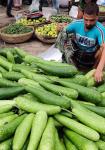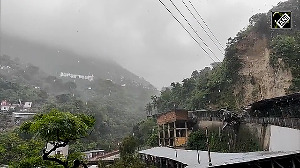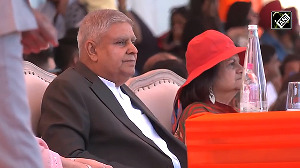Visa applicants from countries like India, Pakistan and Indonesia may face tougher requirements in Australia, including biometric checks, an expert has said.
Though, a counter terrorism white paper released by Prime Minister Kevin Rudd today did not name the countries, which will be covered by the new rules, security experts have been quoted by The Herald Sun as saying that Pakistan is "high on the list".
The new rules include mandatory collection of fingerprints and facial imaging data for visa applicants to help keep terrorists from evading detection.
"You'd have to say that every major terrorist attack of the last few years has either originated in or been planned in Pakistan," former spy Carl Ungerer said.
He said India was also "of concern" as a potential source of terrorists, the report said.
Ungerer, Director of National Security Project at Australian Strategic Policy Institute, said the majority of countries on the list would be "from South Asia and North Africa."
'There may be one or two countries from South-East Asia,' he said.
Ungerer also said, Indonesia remained a 'country of concern' and did not rule it being named on the list. Ungerer noted the bulk of Australians killed by terrorists were killed in Indonesia.
'Therefore you'd have to say that it was one of those countries that the government would have to look at. I think when you read the white paper and its emphasis on Somalia and Yemen, I think it's highly likely that those two countries would feature on the new list,' he said.
$62 million will fund the introduction of biometric-based systems and reduce the risk of terrorists entering Australia. A new counter-terrorism control centre will be established that will improve the ability of agencies to operate against terrorism and to detect and prevent terrorists' threats.
The report said Al-Qaida posed a threat and the growing number of homegrown terrorists was a major concern. It warned 'lone wolf' attackers -- with no group affiliation but motivated by the same ideology 'can emerge at any time'.
The list is certain to include nations such as Afghanistan, Yemen, and Somalia. Other high-risk nations include Algeria, Lebanon, Libya, Syria, Iran and Saudi Arabia. Indonesia is also considered a candidate.
Foreign Affairs Minister Stephen Smith admitted singling out countries could cause tensions.
'There may well be a diplomatic effort required in respect of some of those countries as you would expect,' he said. The report said a nuclear attack was beyond terrorists' current capability, but a crude "dirty bomb" was possible.







